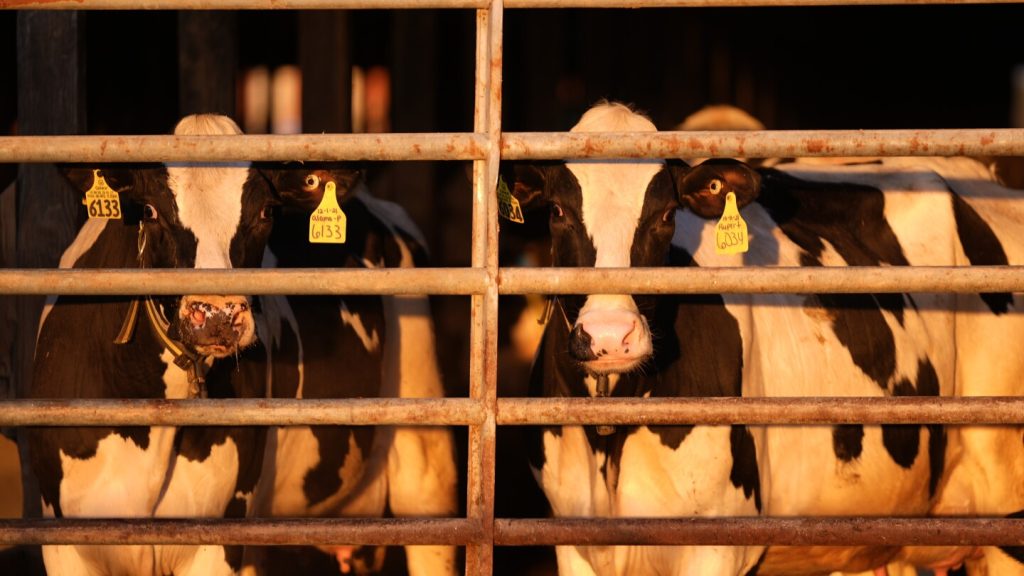U.S. health and agriculture officials have announced nearly $200 million in new spending and efforts to help track and contain an outbreak of bird flu in dairy cows across nine states in the country. The funding includes provisions for prevention, testing, tracking, and treatment of animals and humans affected by the Type A H5N1 virus. Additionally, individual farms will receive financial assistance to test cattle and enhance biosecurity measures to stop the spread of the virus. Dairy farmers affected by the outbreak will also be compensated for the loss of milk production, and farm workers will be paid to participate in a workplace study conducted by the USDA and CDC.
Farmers have been hesitant to allow health officials onto their farms for testing due to concerns about the impact on their businesses, while farm workers, including migrant workers, have been reluctant to be tested out of fear of missing work or being tracked by the government. The National Milk Producers Federation has welcomed the new resources, emphasizing the importance of caring for farm workers and animals, protecting against human health risks, and reassuring the public. The incentives provided should help increase farmers’ willingness to test their herds, according to experts monitoring the outbreak.
The announcement of new funding comes over six weeks after the first-ever detection of avian bird flu virus in dairy cattle, with cases confirmed in both cattle and a dairy worker in Texas. The outbreak remains limited to nine states, with testing and monitoring ongoing. Samples of retail milk nationwide have shown traces of the virus in about 1 in 5 samples, suggesting a potential spread of the outbreak. Farmers are required to test lactating dairy cattle for H5N1 before moving them between states, with positive results reported in some cases. Laboratories are conducting increased testing to monitor and contain the virus spread in cattle.
About 50,000 dairy cattle typically cross state lines weekly, increasing the risk of virus transmission. The FDA found that pasteurization eliminates the virus in dairy products like milk, cottage cheese, and sour cream, reinforcing the importance of consuming pasteurized products. Tests are being conducted on raw milk samples to determine virus levels that pasteurization must eliminate in commercial products. The USDA found no evidence of the virus in retail ground beef, with officials reiterating that the risk to the public remains low. Efforts are ongoing to contain the outbreak and ensure the safety of both animals and humans.
Overall, the response to the bird flu outbreak in dairy cows involves a multifaceted approach, combining testing, monitoring, compensation for farmers, and awareness of food safety measures. The collaboration between health and agriculture officials, dairy farmers, and industry stakeholders is crucial in containing the spread of the virus and protecting public health. Continued efforts in testing, tracking, and biosecurity measures are essential to prevent further outbreaks and ensure the safety of dairy products. The ongoing situation highlights the importance of vigilance and preparedness in addressing emerging health threats in both animal and human populations.


